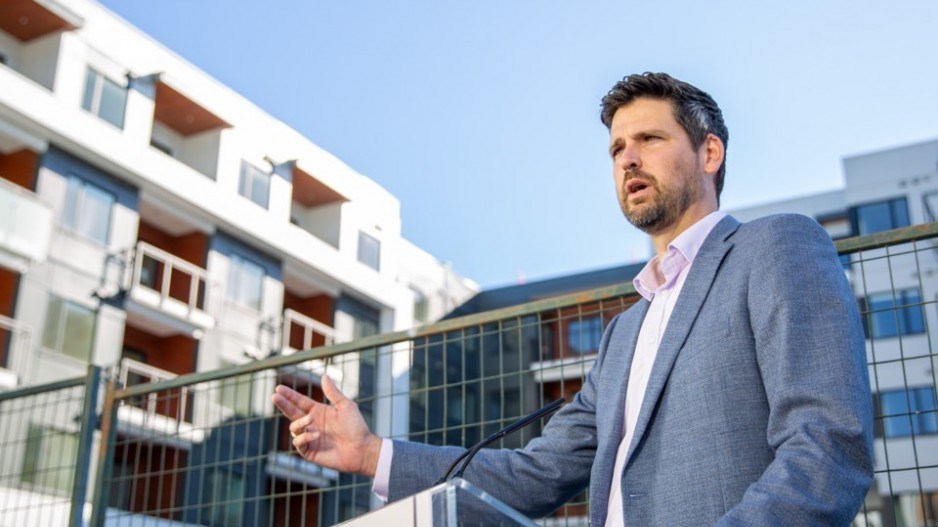Federal housing minister Sean Fraser has told Metro Vancouver that its proposal to increase housing development fees for new sewer and water facilities is “at odds” with his so-called Housing Accelerator Fund aimed at promoting construction.
Fraser has penned a letter to Metro Vancouver board chair and Delta Mayor George Harvie to suggest delaying the development cost charge (DCC) proposals, which could more than triple by 2027 should the board vote in favour of a report from staff this Friday.
Fraser has already pulled $138 million to fund an acceleration of housing permits and new affordable housing projects in Surrey and Burnaby although his letter does not explicitly state that federal money will remain off the table should the board adopt the new fees.
“In the spirit of finding a solution, I would like to collaborate on a resolution that ensures Metro Vancouver can support the infrastructure demands which growth will create, while respecting the spirit of building as many new homes as possible,” wrote Fraser.
He suggests Metro Vancouver delay enactment of the DCC increase to allow for additional projects to come in-stream under the old fee structure.
Fraser also suggests waiving fees for privately built purpose-built rentals and to non-market rental units that are delivered by the private sector.
Metro Vancouver is already waiving the fees for government-funded affordable housing projects.
But, it says it needs the higher fees to pay for new water and sewer facilities and, to a lesser degree, more parkland, In order to accommodate the growing population.
The basic mantra is that growth should pay for growth — something that had not been happening for decades, resulting in a backlog of infrastructure needs with no money in the bank.
Metro Vancouver has noted that the money needs to come from somewhere, to build the infrastructure and if it does not come from new residents then existing residents will have to share in the bill via higher property taxes.
The development industry has, generally, suggested that the fees will mean higher home prices, according to consultation through planners. Developers cited rising interest rates and construction costs as added burdens to their profit margins.
Metro Vancouver staff are recommending the new fees be adopted because of “the goals of growth to pay for growth, financial sustainability and regional affordability.”
Metro Vancouver is proposing to increase DCCs by roughly $23,000 per new single-family home; $21,000 per new townhome; and $14,000 per new apartment.
For example, fees for a townhouse in Vancouver will rise from $10,027 today to $30,861 by 2027.
Metro needs to build 90 kilometres of new water transmission mains, two new in-system reservoirs, two new pump stations and a new source water intake treatment facility. Ten new sewer facility projects are earmarked as well, according to the Oct. 5 staff report.
A presentation from Sonu Kailley, acting director of financial planning, shows the region needs to raise $11.5 billion for growth-related capital projects. Two years prior the bill was $8.1 billion. The report does not provide detailed breakdowns nor explain the $3.4-billion difference.
Meanwhile, existing Metro Vancouver taxpayers are facing a $22.9-billion bill for upgrades.
And since Metro Vancouver hadn’t been collecting enough money from developers previously, in addition to inflationary costs, property taxes will increase by 12 per cent, 11 per cent in the next two years and a projected five per cent each of the following three years. The Metro Vancouver portion of an average household will rise from $623 this year to $854 by 2027 (lower than prior projections of $1,023).




